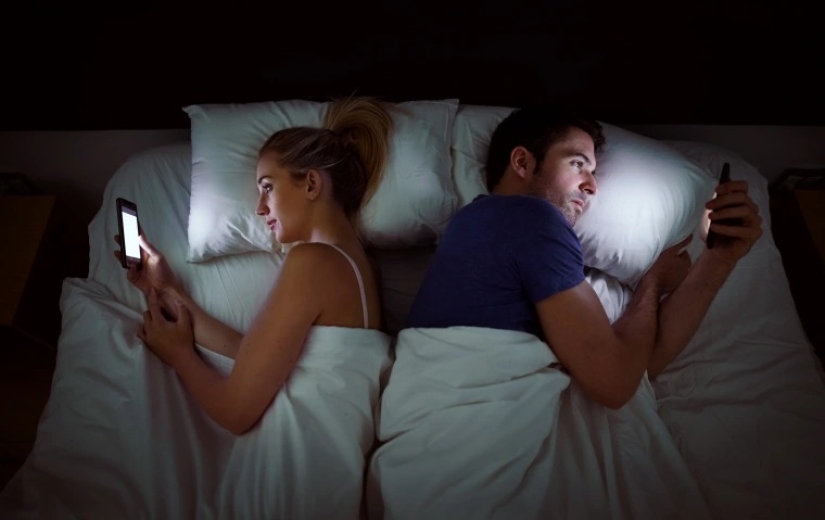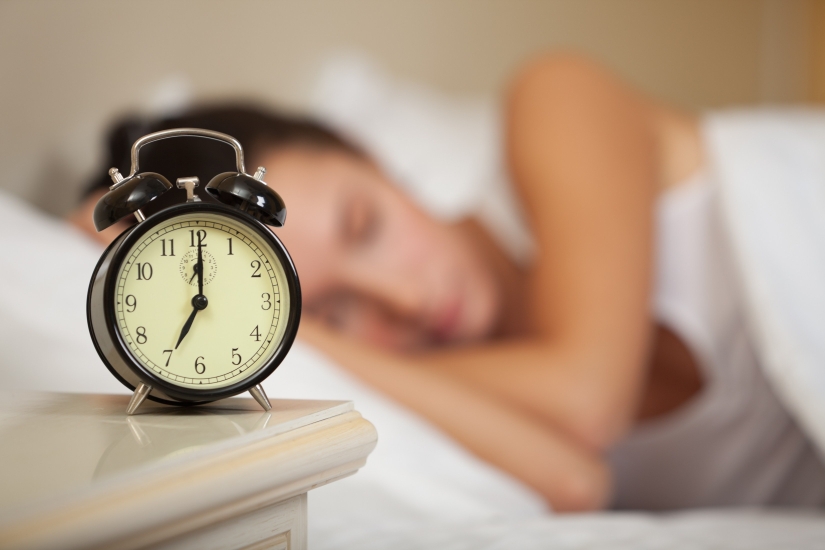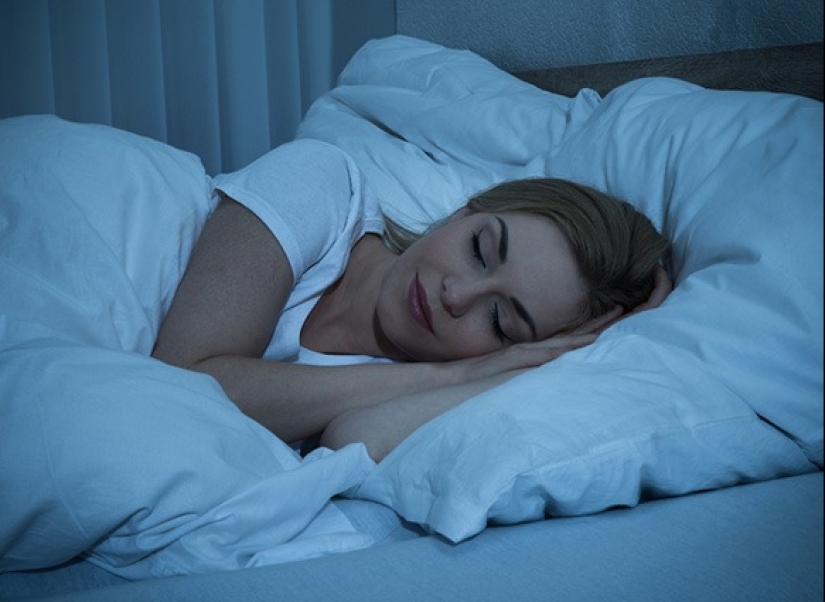This Proven 5-Step Method Helps You Fall Asleep Fast and Wake Up Rested, According to a Psychology PhD
Categories: Health and Medicine | Healthy lifestyle | Life hacks | Lifestyle | People | Society
By Vika https://pictolic.com/article/this-proven-5-step-method-helps-you-fall-asleep-fast-and-wake-up-rested-according-to-a-psychology-phd.htmlWhatever you do, don't look at the clock
Even if you think you're getting enough sleep, you may not be getting enough rest. That insight comes from Terry Lyles, a psychology Ph.D., a stress expert who coaches fighter pilots and firefighters, and co-author of the new book Becoming Invaluable. "Sleep is what our body needs," he explains. "Rest is what our mind and soul need for the body to recover itself." If you sleep but don't rest, he explains, you're likely to wake up the next morning still feeling tired.
You likely already know how incredibly important getting enough quality sleep is to every aspect of your life. Not getting proper sleep can affect your performance at work, impair your judgment (including your judgment about whether you need more sleep), and increase your risk of dementia. It's hard to overstate how important getting enough sleep, and the right kind of sleep is for every aspect of your well-being.
So how do you make sure you're getting enough of the right kind of sleep? Here's Lyles's recipe for a restful night.
5 PHOTOS

1. Have enough nightlights.
Your first step in this process begins way before you head for bed. You have to make sure there are enough nightlights so that if you need to get out of bed in the middle of the night, for instance, to use the bathroom, you'll be able to see your way there and back without having to turn on a light. "Don't turn lights on," he says. "Have nightlights set up in your house so that it's low-lit. Do what you have to do and get back in bed." Turning on a light will jar you out of that restful state, making it harder for you to get back to sleep.

2. Put your phone away.
You've likely heard by now that looking at any kind of electronic screen, including your phone or a television, can interfere with restful sleep. Once you're in bed and ready to go to sleep, don't look at your phone anymore.
In particular, he says, if you wake up during the night for whatever reason, resist the temptation to grab your phone or turn on the television. "How quickly can you recover and go back to sleep?" he says. Turning on your phone or your television won't help you do that. "The way to recover is to relax and know how to go back into that brainwave cycle that can get you back to an eventual REM sleep." (REM, or rapid eye movement, sleep is the sleep stage where you dream, and it's important for making you feel rested.)

3. Never look at the clock.
If you're accustomed to checking your bedside clock or your watch if you wake up during the night, Lyles recommends getting out of that habit immediately. "Never look at the clock at night," Lyles advises. "It's worse than your cell phone." Looking at the clock causes your left brain to take over, he says. That can make you start thinking about all the things you need to do or want to do for work.
Eventually, he says, you'll fall back asleep because you're tired. "But now you've got crazy dreams. Now you wake up not rested, even though you slept," he says.

4. Reset your focus.
Lyles recommends meditation as a way to unwind and get into that sleep state. But when he says "meditation," he doesn't necessarily mean sitting cross-legged or reciting a mantra. "Meditation is misconstrued and misunderstood," he says. "I teach athletes how to meditate amid performance."
Here's an example, he says: "Everyone knows how to worry. That's a trained muscle. Worry is negative meditation." So, he says, change the object of your focus. "If you change the object to something awesome, something you're grateful for, someone who loves you or whom you love? Boom! That's meditation."
Focusing on the wrong thing causes your body to release cortisol (sometimes called "the stress hormone"). "Now we wind up with all this imagery and distractability, and we're afraid," Lyles says. To stop this process, he recommends having a visualization prepared that you can mentally grab when you need it. "The mountains, the beach, it doesn't matter," he says. "Go there and take it in visually. Keep your eyes closed and breathe yourself back. Before long, you're back asleep."

5. Practice "4-1-4 breath."
"You can breathe yourself to sleep," Lyles says. This is because slowing down your breath slows your heartbeat and signals to your body that there is nothing to fear.
Lyles recommends "4-1-4 breath." Breathe in for four seconds by counting to yourself "One one thousand, two one thousand," and so on. Then hold your breath for one second, and breathe out for four seconds. By repeating that cycle, he says, "You put yourself to sleep because your body goes into that resting physical mode."
Lyles says he teaches this approach to athletes lying on floor mats in a gym, and they usually fall asleep within five minutes. "We're all fatigued, we're all overused," he says. "If you put your body in a restful state, your body will fall asleep. You don't have to put yourself to sleep--it will go into sleep mode."
There's a growing audience of Inc.com readers who receive a daily text from me with a self-care or motivational micro-challenge or tip. Often, they text me back and we wind up in a conversation. (Want to learn more? Here's some information about the texts and a special invitation to an extended free trial.) Many are entrepreneurs or business leaders and they understand the importance of sleep and rest if they want to do their best work. These simple steps can help you get more of both.
Keywords: Sleep method | Quality of sleep | Sleeping tips | Lifehacks | People | Lifestyle | Healthy life
Post News ArticleRecent articles

It's high time to admit that this whole hipster idea has gone too far. The concept has become so popular that even restaurants have ...

There is a perception that people only use 10% of their brain potential. But the heroes of our review, apparently, found a way to ...

New Year's is a time to surprise and delight loved ones not only with gifts but also with a unique presentation of the holiday ...